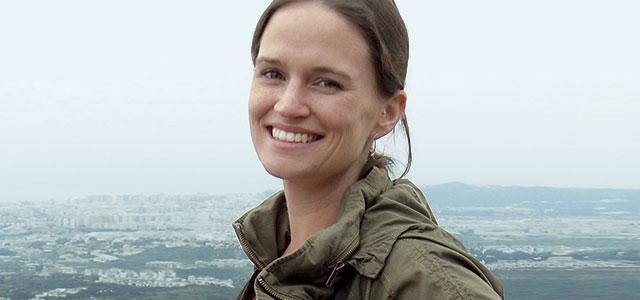
Emily Green, doctoral student in the Department of Family Health Care Nursing at UCSF School of Nursing
Creating a Window into the Unique Health Needs of Immigrant Teens
Adolescence is a crucial time for developing a sense of self and appropriate health behaviors. In this context, immigrant adolescents face the extra challenge of transitioning to a new culture, and it is unclear how this transition affects their development. Scholars of immigration have identified the needs of immigrant youth as a priority area for health research.
With that in mind, my research focuses on understanding the developmental processes faced by immigrant adolescents – specifically, East African youth. Identifying risk and protective factors that contribute to healthy development of these young people has the potential to bolster future health promotion and disease prevention programs with culturally competent, developmentally appropriate, feasible and effective interventions.
Little is known, however, about this growing population. Current census numbers put the number of African immigrants in the US at 1.6 million, or 4 percent of the US immigrant population. The 2006 American Community Survey indicated that 38,000 African immigrants live in the Bay Area, with a little under 5,000 in the City and County of San Francisco; 53 percent of those originate from East Africa, primarily Ethiopia and Kenya. However, these numbers are likely an underestimate, as census information has no category for selecting African, only African American.
The increasing number of Africans entering the country is contributing to the formation of a substantial community with unique health needs. My work with first-generation East African immigrant adolescent females explores how they experience and understand their health and development and what factors across the social contexts of community, school, family and peer groups affect their developmental processes. When I conducted a pilot study, themes that arose included (1) the impact of “trying to fit in” on self-esteem and confidence, (2) the effects of the immigration experience on identity development, specifically, the tensions surrounding ethnic labeling, and (3) the changing family dynamics and role development following immigration. I will explore these aspects of adolescent development in the dissertation phase of my studies.
In a country where most of us live and work amidst diversity, this is exciting and important work. My long-term career goal is to find ways to bridge cultural differences so that our health systems, programs and providers truly reflect our diversity.
I feel lucky to have the opportunity to do this: to dedicate my nursing career to a life of inquiry and purpose at a place where nurse scientists provide expert mentorship and value the impact of cultural diversity on development and health. I am working toward a doctoral degree because of my belief that the generation and accumulation of knowledge – and the application of that knowledge – has enormous value to individual lives.
A pivotal experience in my education was receiving a National Research Service Award (NRSA) from the National Institutes of Health (NIH) to support my full-time training and education as a doctoral student. This grant initiated me into the world of grant writing and the ins and outs of working with large agencies for funding. It allowed me to think through both my educational plan and my research project trajectory – and to identify expert mentors to work with.
The grant is intended to provide financial support that allows for full-time study. It provides three years of partial support for tuition and a monthly stipend. While this is not enough to live on (especially in California), it does allow me to reduce the number of hours I work clinically to support myself, and to focus on the qualifying exam and dissertation process.
But perhaps most importantly, a grant like the NRSA has power well beyond its financial support. It is a wonderful place to start my track record with the NIH and creates a record of federal funding for my program of research. It garners respect among colleagues and future employers. And it inspires critical confidence in myself. My understanding is that the program has a successful funding rate of approximately 10 percent of all applicants, so I now know that reviewers at the national level see value in my research area and potential in me to become a research scientist.
That helps me focus on the training I need to achieve my goal of helping to create a clearer understanding of culturally diverse youth and how their unique attributes impact their health and the health of those around them.
Emily Green is a doctoral student in the Department of Family Health Care Nursing at UCSF School of Nursing. She has clinical experience in international nursing in Uganda and in pediatric and adolescent community health. Her academic adviser and NRSA mentor is UCSF School of Nursing faculty member Susan Kools.



